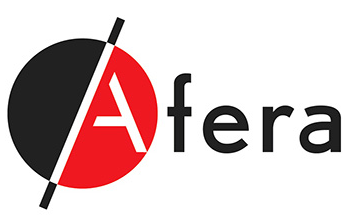
March 2019
March 2019
Food contact materials
European Commission opens consultation of E.U. legislation for food contact materials
This consultation aims at gathering the views and evidence from a wide range of stakeholders on the functioning of the food contact materials legislation. The feedback will be taken into account in the evaluation of the current legislative framework. The consultation is open from 11 February – 6 May 2019 and can be accessed here.
Guidance on mineral oil hydrocarbons
On 23 February, the E.U. Commission’s Joint Research Centre (JRC) published guidance for sampling, analysis and reporting of monitoring results for mineral oil hydrocarbons in food and food contact materials. The guidance can be found here.
REACH/CLP and biocides
Act now to stay in the E.U. market after the U.K.’s withdrawal
All companies placing chemical substances onto the markets of the E.U. and European Economic Area need to prepare for the U.K.’s withdrawal from the E.U. ECHA (The European Chemicals Agency), CEFIC and the U.K. authorities have updated their guidance for companies potentially affected by a no-deal Brexit.
Full guidance information can be found here:
Cefic/CIA briefing note: Preparing for a future 'UK out of REACH scenario' | ECHA's UK withdrawal from the EU web pages | Health and Safety Executive U.K.
ECHA’s Brexit window to stay open beyond 30 March
The European Council has changed the date of the UK's withdrawal from the EU to either 12 April or 22 May 2019. ECHA advises companies to continue their preparations for a UK withdrawal without a transition period. Therefore, the ‘Brexit window’ will stay open beyond 30 March, subject to further developments. News
Registries of SVHC and restriction intentions updated to cover entire processes
The registries of ECHA now cover the steps in the procedures for substances of very high concern (SVHC) identification and restriction from intention until outcome, including committee opinions or agreements.
The public activities coordination tool (PACT) has also been updated to include the outcomes of the SHVC identification and restriction processes.
Registry of SVHC intentions until outcome | Registry of restriction intentions until outcome | PACT
Member States will evaluate 31 substances in 2019
ECHA has adopted the updated Community rolling action plan (CoRAP) for substance evaluation, with 100 substances listed to be evaluated in 2019-2021. Registrants of the listed substances are encouraged to keep their registrations up to date and to contact the evaluating Member States.
Public consultations on restriction proposals on microplastics, formaldehyde and D4, D5 and D6
ECHA has submitted proposals to restrict:
- microplastics (EC -, CAS -);
- formaldehyde and formaldehyde releasers (EC -, CAS -); and
- octamethylcyclotetrasiloxane (D4) (EC 209-136-7, CAS 556-67-2), decamethylcyclopentasiloxane (D5) (EC 208-764-9, CAS 541-02-6) and dodecamethylcyclohexasiloxane (D6) (EC 208-762-8, CAS 540-97-6).
The deadline for comments is 20 September 2019, 23:59 Helsinki time. Early comments are welcome by 20 May 2019 to assist in first discussions on the proposal.
Participate in the public consultation
Registrants: get ready to comment on the 2018 substance evaluation draft decisions
On 18 April, ECHA will send out 11 draft decisions on information requests to registrants for comments. The registrants will have 30 days to submit their comments. The decisions are on substances evaluated by Member States in 2018 on which further information is required to clarify the identified concerns.
ECHA recommends that 1 representative send consolidated comments on behalf of all addressed registrants of a substance. The conclusion documents with possible indications for further regulatory action will soon be published on ECHA’s website.
Substance evaluation outcomes 2018 | Practical guide – how to act in substance evaluation | CoRAP table | Substance evaluation web pages
Inspectors checking consumer products for hazardous chemicals
Inspections for 2 EU-wide enforcement projects are currently under way to identify hazardous chemicals in consumer products. 1 project focuses on treated articles and chemical mixtures for consumer and professional uses under the Biocidal Products Regulation. The other targets REACH and CLP obligations for imported products and is performed in cooperation with customs authorities.
News release | Enforcement projects
Supply chain communication: new format for reporting of exposure data by downstream users
ECHA’s new format helps downstream users of authorised substances report occupational exposure measurements or biomonitoring data related to the tasks performed at their sites. The format aims to ensure that exposure information provided in review reports or initial applications for authorisation covering several sites downstream is of high quality. The availability of such exposure information will also enable industry to better evaluate the appropriateness and effectiveness of current risk management measures.
Submitting downstream user notification of authorised uses
Sustainability
Nestlé announces “negative list” of packaging materials
In mid-January, Nestlé published a list of packaging materials “for which recycling schemes are unlikely to be established”. The company stated that it would no longer use these materials in new product packaging and would immediately begin phasing them out from existing packaging. These include PVC, PVDC, (expanded) polystyrene, regenerated cellulose and non-recyclable plastic/paper combinations. The full materials list can be found here.
December 2018
September 2018
June 2018
April 2018
February 2018

